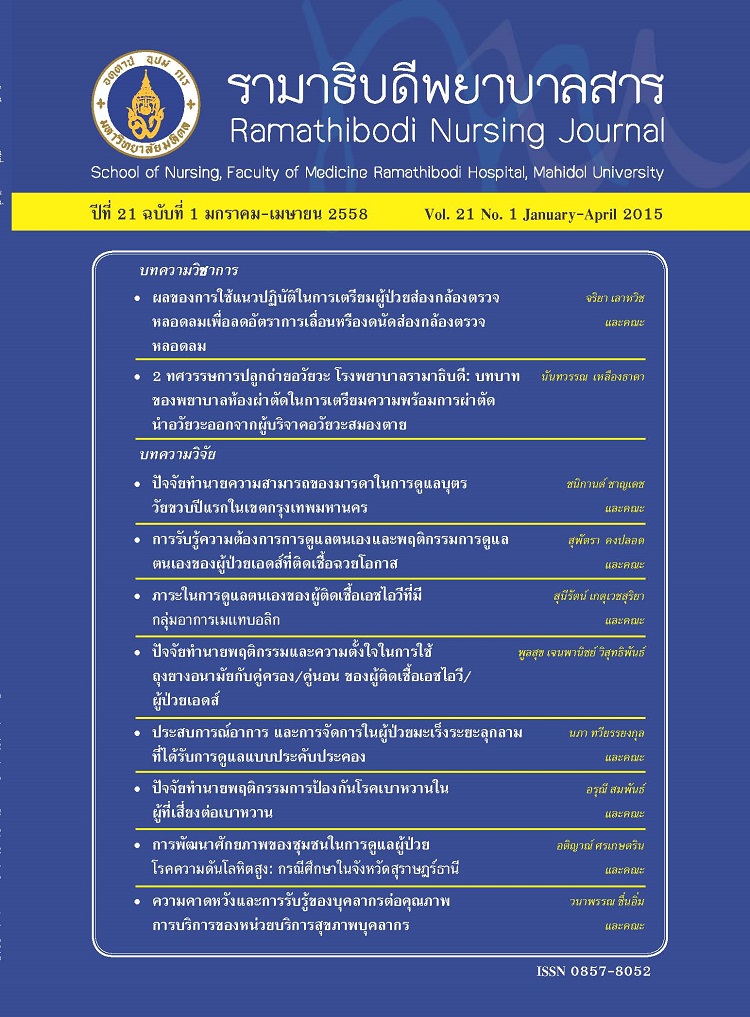SYMPTOM EXPERIENCE AND SYMPTOM MANAGEMENT IN PATIENTS WITH ADVANCED CANCER RECEIVING PALLIATIVE CARE
Main Article Content
Abstract
The present descriptive research aimed to investigating symptom experience in each domain and each aspect, as well as symptom management of advanced cancer patients receiving palliative care, both pharmacological and non-pharmacological management, and their symptom status after symptom management. It also aimed to exploring the relationship between each domain and each aspect of symptom experience and symptom management in pharmacological and non-pharmacological management. The study sample consisted of 83 patients diagnosed with all types of advanced cancer who were admitted into a hospital. The subjects were recruited by means of purposive sampling. Data were collected using questionnaires and were analyzed in terms of descriptive statistics, Pearson’s product moment correlation coefficient, and Spearman’s rank correlation coefficient.
The study findings revealed that the most prevalent, frequent, and severe symptom was insomnia, and the most distressing symptom was pain. As for symptom management, the most commonly used pharmacological symptom management was analgesic and adjuvant medication, while the most commonly used non-pharmacological management was talk and encouragement from surrounding persons for psychological comfort. With regards to relationships, it was found that 1) overall symptom experience, symptom frequency, and symptom severity of the physical aspect of symptom experience were positively related to pharmacological management, 2) overall symptom experience, symptom frequency, and symptom severity were positively related to the psychological group of non-pharmacological management, 3) overall symptom experience and symptom distress were negatively related to the mind-body intervention and spiritual group of non-pharmacological management, and 4) overall symptom experience, the physical aspect and the psychological aspect of symptom experience, symptom frequency, symptom severity, and symptom distress were positively related to the traditional medicine, herbs, and diet group of non-pharmacological management.The study findings could be used as baseline data to comprehensive assessment, and its effects on patients with advanced cancer. The data can also be used to develop a care plan and seek symptom management methods that best serve the patients’ needs to reduce their sufferings and severity of symptoms while promoting their physical comfort to enhance happiness and quality of their final stage of life.
Article Details
บทความ ข้อมูล เนื้อหา รูปภาพ ฯลฯ ที่ได้รับการตีพิมพ์ในรามาธิบดีพยาบาลสาร ถือเป็นลิขสิทธิ์ของวารสาร หากบุคคลหรือหน่วยงานใดต้องการนำทั้งหมดหรือส่วนหนึ่งส่วนใดไปเผยแพร่หรือเพื่อกระทำการใด ใด จะต้องได้รับอนุญาตเป็นลายลักษณ์อักษรจากรามาธิบดีพยาบาลสารก่อนเท่านั้น


